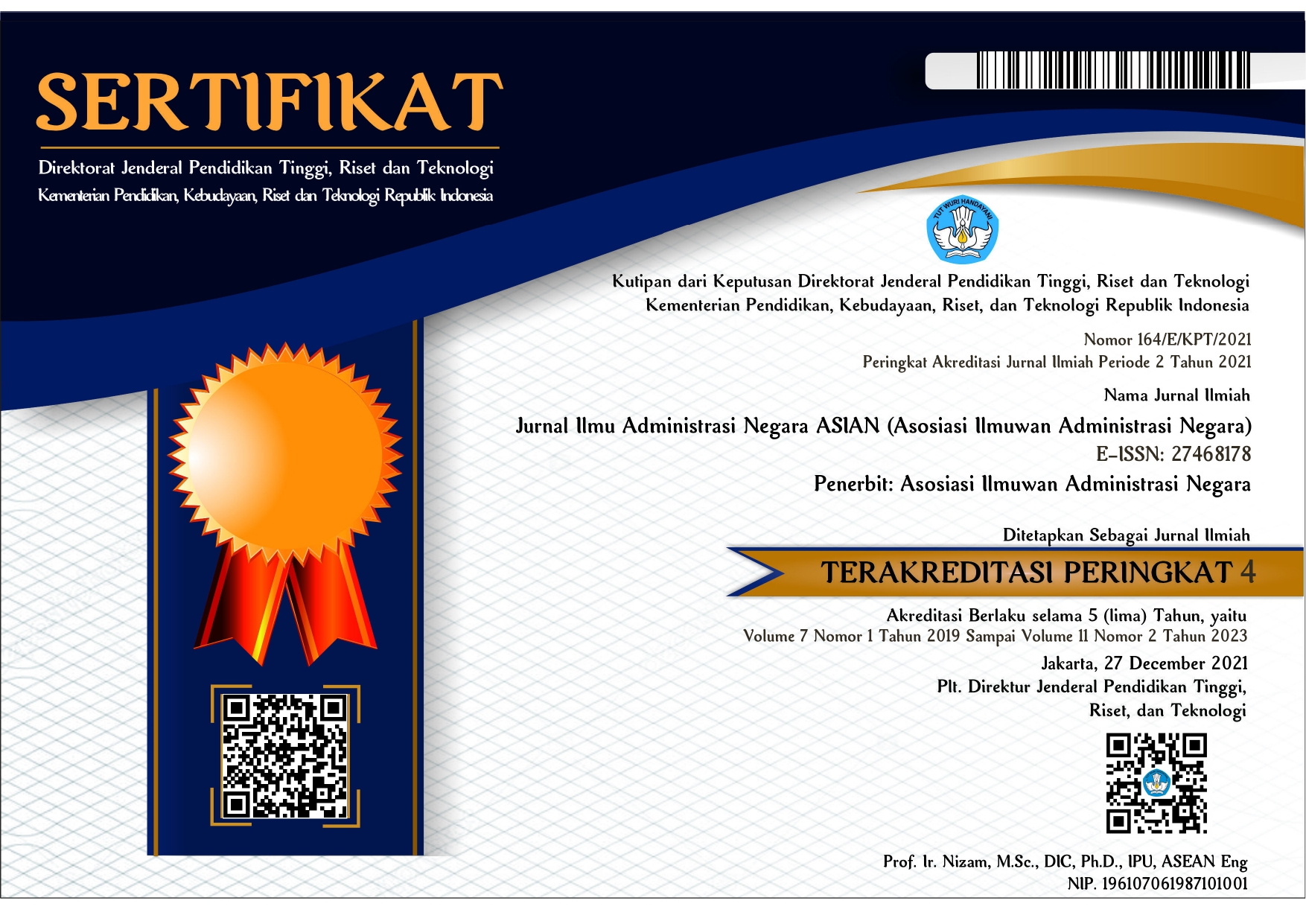Kebijakan Jampersal Sebuah Upaya Mengatasi Masalah Kemiskinan di Kabupaten Konawe Utara Sulawesi Tenggara
 Abstract views: 368
,
Abstract views: 368
,
 PDF downloads: 471
PDF downloads: 471
Abstract
The background of this research is to examine the importance of research on the Maternity Guarantee policy in Kabupaten Konawe Utara in relation to the Government's efforts to assist the poor. The objective of the study was to describe how JAMPERSAL policy was viewed from the aspect of targetedness in helping poor / disadvantaged communities. The problem faced so far is that many poor people do not have BPJS, geographical conditions are still remote, and public confidence in the shaman baby. Type of descriptive research with a qualitative approach. Data collection by interview, observation, and FGD. Techniques of determining informants Purposive. From the research results can be seen that viewed from 3 (Three) indicators are the accuracy of target recipients, the accuracy of the target in the condition ready intervened and the accuracy of target intervention in the implementation of policies that are updating the previous policy implementation. The recommendation is to increase the socialization of Jampersal policy to the community directly. The findings of this field are many of the views of the pros and cons that arise due to the rigidity of the rules used in the technical guidelines that apply. This is what makes the implementation in the field is not achieved properly.
Downloads
Authors who publish with this journal agree to the following terms:
1. Copyright on any article is retained by the author(s).
2. The author grants the journal, right of first publication with the work simultaneously licensed under a Creative Commons Attribution License that allows others to share the work with an acknowledgment of the work’s authorship and initial publication in this journal.
3. Authors are able to enter into separate, additional contractual arrangements for the non-exclusive distribution of the journal’s published version of the work (e.g., post it to an institutional repository or publish it in a book), with an acknowledgment of its initial publication in this journal.
4. Authors are permitted and encouraged to post their work online (e.g., in institutional repositories or on their website) prior to and during the submission process, as it can lead to productive exchanges, as well as earlier and greater citation of published work.
5. The article and any associated published material is distributed under the Creative Commons Attribution-ShareAlike 4.0 International License









